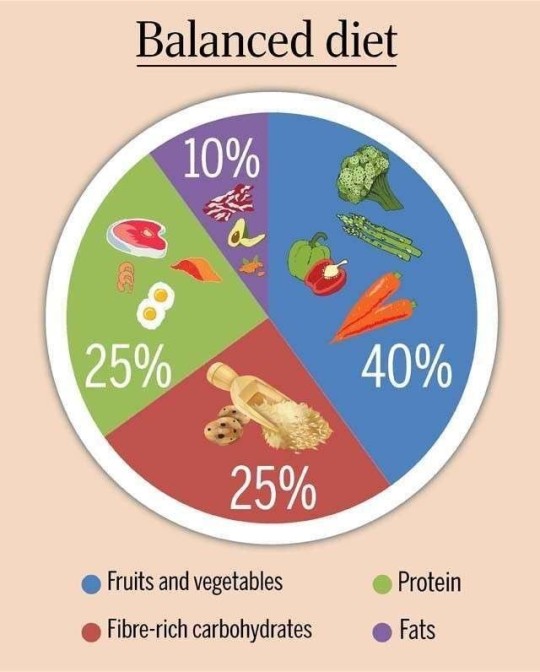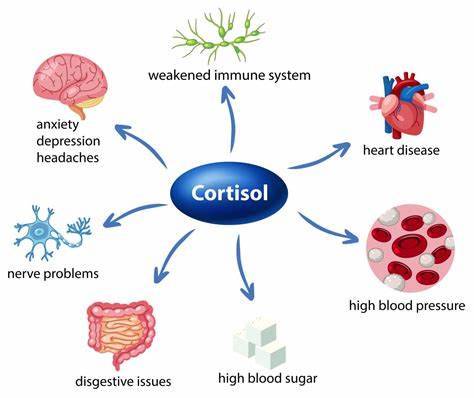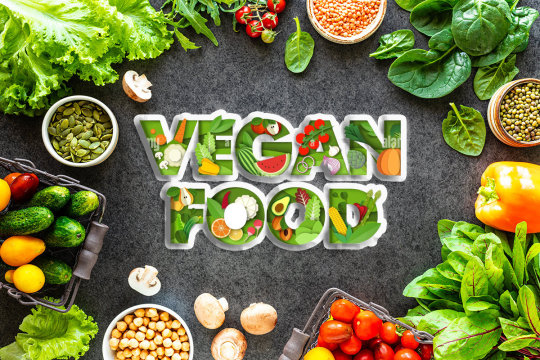#Practical tips on diet and immune system
Explore tagged Tumblr posts
Text
The Ultimate Guide to Natural Health: Secrets for a Long, Active, and Fulfilling Life

Introduction Living a long, vibrant, and healthy life is a universal aspiration. While genetics play a role, research shows that lifestyle choices significantly impact longevity and well-being. This comprehensive guide explores the pillars of natural health, offering actionable tips, real-world examples, and step-by-step strategies to help you thrive. Whether you’re starting your wellness journey or seeking to optimize habits, this article provides the tools to unlock a healthier, happier you.
Boost your vitality, strengthen your immunity, and age gracefully with AgeShield, your trusted health supplement solution!
The Pillars of Natural Health
Natural health rests on interconnected foundations that work synergistically to enhance vitality. By prioritizing these elements, you can build resilience against disease and boost overall wellness.
1. Clean Air: Breathe Easy for Optimal Health
Indoor air pollution—from dust, mold, pet dander, and chemicals—can harm respiratory health and increase chronic disease risk.
Tips to Improve Air Quality:
Ventilate daily: Open windows for 10–15 minutes to circulate fresh air.
Use air purifiers: Opt for HEPA filters to capture allergens.
Choose non-toxic cleaners: Replace chemical sprays with vinegar, baking soda, or eco-friendly brands.
Add plants: Spider plants and peace lilies naturally filter toxins.
Example: A 2020 study found that improving ventilation reduced asthma symptoms by 30% in households.
2. Pure Water: Hydrate for Vitality
Water is essential for digestion, cognitive function, and detoxification. Yet contaminants like lead and chlorine lurk in tap water.
Actionable Guide:
Drink filtered water. Use a reverse osmosis or activated carbon filter.
Track intake: Aim for 8–10 glasses daily (adjust for activity level).
Infuse flavor: Add cucumber, lemon, or mint to avoid sugary drinks.
Signs of Dehydration: fatigue, dry skin, and headaches.
3. Nutrient-Dense Diet: Fuel Your Body Wisely
A whole-food, plant-centric diet reduces inflammation and chronic disease risk.
Healthy Eating Guide:
Prioritize organic: Reduce pesticide exposure by choosing organic produce (e.g., strawberries, spinach).
Build balanced meals:50% veggies/fruits: spinach, berries, broccoli.25% whole grains: quinoa, brown rice.25% lean protein: salmon, lentils, tofu.
Limit processed foods: Avoid items with added sugars, trans fats, and artificial additives.
Sample Meal Plan:
Breakfast: Greek yogurt with chia seeds and blueberries.
Lunch: Grilled chicken salad with avocado and quinoa.
Dinner: baked salmon, roasted sweet potatoes, and steamed kale.
Boost your vitality, strengthen your immunity, and age gracefully with AgeShield, your trusted health supplement solution!
4. Daily Movement: Exercise for Longevity
Regular physical activity strengthens the heart, muscles, and mental health.
Weekly Exercise Plan:
Cardio (3x/week): 30-minute brisk walk, cycling, or dancing.
Strength training (2x/week): bodyweight exercises (squats, push-ups) or resistance bands.
Flexibility (daily): 10-minute yoga or stretching routine.
Example: A 75-year study by Harvard found that individuals who exercised 150+ minutes weekly lived 5+ years longer than sedentary peers.
5. Restorative Sleep: Recharge Your Body
Poor sleep correlates with obesity, heart disease, and impaired immunity.
Sleep Hygiene Tips:
Set a schedule: Sleep and wake at consistent times.
Create a bedtime ritual: Read or meditate instead of screen time.
Optimize environment: Use blackout curtains and keep the room cool (60–67°F).
6. Strong Social Connections: Boost Happiness
Loneliness increases mortality risk as much as smoking 15 cigarettes a day.
Ways to Connect:
Join a local club (e.g., book club, hiking group).
Volunteer at community centers or food banks.
7. Stress Management: Cultivate Calm
Chronic stress elevates cortisol, leading to inflammation and hypertension.
Techniques to Try:
Mindful breathing: Inhale for 4 counts, exhale for 6.
Journaling: Write down worries to gain perspective.
Nature therapy: Spend 20 minutes daily outdoors.
Putting It All Together: Small Steps, Big Impact
Start with one habit—like drinking more water or walking daily—and gradually add more. Track progress with apps like MyFitnessPal or a journal.
Local Spotlight: Perrysburg, Ohio
Parks: Explore Hood Park for scenic walking trails.
Workshops: Attend nutrition seminars at ProMedica Health Centers.
Boost your vitality, strengthen your immunity, and age gracefully with AgeShield, your trusted health supplement solution!
Conclusion
Natural health isn’t about perfection but consistent, mindful choices. By embracing clean air, pure water, nourishing food, movement, sleep, social ties, and stress resilience, you’ll build a foundation for lifelong vitality. Remember, every small step counts—your future self will thank you.
#Natural Health#Healthy Lifestyle#Longevity Secrets#Holistic Wellness#Clean Air Tips#Hydration Benefits#Whole Food Diet#Exercise for Longevity#Stress Management Techniques#Sleep Hygiene#Healthy Aging#Plant-Based Nutrition#Indoor Air Quality#Mental Wellbeing#Immune System Boost#Functional Fitness#Mindfulness Practices#Social Connection Benefits#Detoxification Strategies#Wellness Coaching#Wellness Tips for Beginners#Healthy Habits Guide#Daily Exercise Routine#Non-Toxic Living
0 notes
Text
"Guarding Your Health: Effective Disease Prevention Strategies in the UK"
Living a healthy life is a universal aspiration, and in the United Kingdom, it’s no different. While healthcare services in the UK are excellent, it’s equally important for individuals to take proactive steps in preventing diseases and maintaining overall well-being. In this blog, we’ll explore some key strategies to help you guard your health effectively. 1. Prioritize Regular…

View On WordPress
#balanced diet#Disease Prevention#Disease Prevention Strategies#exercise#fitness#Health and Wellness#Health Awareness#Health Education#Health Maintenance#health tips#Healthcare#healthy habits#healthy lifestyle#healthy living#Hygiene Practices#immune system#mental health#nutrition#Preventative Healthcare#Preventing Illness#Preventive Medicine#public health#Regular Check-ups#sleep#UK Health#UK Healthcare#Vaccinations#Well-being#Well-being Tips#wellness
0 notes
Text
Mybabyfor - Devasa+ (2)
Bonding and emotional connection between a mother and her baby are crucial for the baby's overall development and well-being. Building a strong bond with the baby helps in creating a sense of security and trust, which is essential for their emotional and social development. Mindfulness practices can be beneficial for mothers in reducing stress and enhancing their emotional connection with their infants. Spending quality time with the baby, engaging in activities such as talking, singing, and cuddling, can strengthen the bond between the mother and the baby. This emotional connection provides a nurturing environment for the baby's growth and development. Proper nutrition and a well-established feeding schedule are vital for the baby's growth and development. Breastfeeding is recommended as the best source of nutrition for infants, as it provides essential nutrients and antibodies that boost their immune system. Mother psychology should ensure that they have a balanced diet and consume enough fluids to maintain their own health and provide adequate nutrition to their nasal congestion in babies. It is important to follow the guidance of healthcare professionals regarding the introduction of solid foods and the appropriate feeding schedule for the baby's age and developmental stage. Regular check-ups with a pediatrician can help monitor the baby's growth and ensure that they are receiving the necessary nutrition for their development. Maintaining proper hygiene and ensuring regular check-ups are essential aspects of baby care. Baby care tips for mothers, should pay attention to keeping the baby clean and changing diapers regularly to prevent skin irritations and infections. Bathing the baby movements in the womb with gentle products suitable for their delicate skin is important. Regular visits to the pediatrician for vaccinations, anger management in children, developmental assessments, and overall health check-ups are crucial to monitor the baby's growth and detect any potential health issues early on. Additionally, seeking support from loved ones and joining parenting support groups can provide mothers with valuable advice and assistance in caring for their babies. By prioritizing hygiene and regular check-ups, mothers can ensure the well-being and health of their babies.
1K notes
·
View notes
Text
StayInBed™: Unlock Vitality and Boost Male Performance
A fulfilling and vibrant intimate life is essential for overall well-being and confidence. For many men, stress, aging, and lifestyle factors can diminish energy and libido, affecting both physical and emotional health. Enter StayInBed™ Premium Libido Vitalizer for Men, a revolutionary supplement designed to naturally restore vitality, enhance stamina, and improve overall sexual health.

In this article, we’ll explore the science behind libido, the unique benefits of StayInBed™, actionable tips for improving sexual wellness, and how this supplement can help you reclaim your confidence.
Libido refers to an individual’s sexual drive or desire. It is influenced by a complex interplay of physical, psychological, and hormonal factors. A healthy libido is a sign of balanced testosterone levels, good mental health, and a properly functioning circulatory system.
Causes of Low Libido in Men
Hormonal Changes: Declining testosterone levels with age can lead to reduced libido.
Stress and Anxiety: Chronic stress elevates cortisol, which suppresses testosterone and affects mood.
Lifestyle Factors: Poor diet, lack of exercise, smoking, and alcohol consumption negatively impact libido.
Underlying Health Issues: Conditions like diabetes, heart disease, and obesity can decrease sexual drive.
Medications: Certain drugs, including antidepressants, can interfere with sexual desire.
StayInBed™ Premium Libido Vitalizer: A Natural Solution
StayInBed™ is formulated with a blend of potent, natural ingredients designed to address the root causes of low libido while enhancing overall vitality.
Key Ingredients and Their Benefits
Tribulus Terrestris
Boosts testosterone production.
Enhances libido and sexual satisfaction.
Ashwagandha
Reduces stress and anxiety, improving mental well-being.
Supports healthy testosterone levels.
Ginseng
Improves energy and endurance.
Enhances blood flow for better performance.
L-Arginine
Boosts nitric oxide levels, promoting improved circulation and stronger erections.
Fenugreek
Supports hormone balance.
Increases energy and stamina.
Zinc and Magnesium
Essential minerals that aid testosterone production.
Boost overall immunity and vitality.
Benefits of StayInBed™ for Men
Enhanced LibidoRegular use helps reignite sexual desire by optimizing testosterone levels and improving blood flow.
Increased Energy and StaminaThe powerful ingredients combat fatigue, ensuring long-lasting energy and endurance.
Improved ConfidenceWith improved performance and satisfaction, StayInBed™ helps rebuild self-esteem.
Stress ReliefAdaptogenic herbs like Ashwagandha and Ginseng promote relaxation and reduce stress, leading to a better overall mood.
Natural and Safe FormulaMade from carefully selected herbal ingredients, StayInBed™ minimizes the risk of side effects compared to synthetic alternatives.
How to Use StayInBed™
For optimal results:
Take two capsules daily with water after meals.
Combine with a balanced diet and regular exercise to amplify benefits.
Avoid excessive alcohol or smoking to maximize effectiveness.
Tips to Naturally Boost Libido
While StayInBed™ can be a game-changer, incorporating these habits can further improve your results:
Maintain a Balanced Diet: Include libido-boosting foods like nuts, seeds, lean protein, and leafy greens.
Exercise Regularly: Engage in both cardiovascular and strength-training exercises to promote blood circulation and testosterone production.
Get Adequate Sleep: Poor sleep can lead to hormonal imbalances and fatigue. Aim for 7-8 hours of quality sleep.
Practice Stress Management: Meditation, yoga, or breathing exercises can help reduce cortisol levels.
Stay Hydrated: Dehydration can negatively affect energy levels and blood circulation.
Why Choose StayInBed™ Over Other Libido Boosters?
Scientifically Backed IngredientsEach component is chosen for its proven ability to enhance sexual health and energy.
Comprehensive BenefitsUnlike quick fixes, StayInBed™ addresses the root causes of low libido, ensuring long-term results.
No Synthetic ChemicalsStayInBed™ is free from harmful chemicals, making it a safe and natural choice.
Manufactured with CareProduced in a facility adhering to stringent quality standards, StayInBed™ is a premium product you can trust.
BOTTOM LINE
Low libido can have a significant impact on confidence, relationships, and overall happiness. With StayInBed™ Premium Libido Vitalizer for Men, you have a natural and effective way to restore energy, vitality, and passion. By addressing root causes and providing holistic benefits, StayInBed™ is a trusted ally for men looking to reclaim their youthful drive and performance.
For a life full of confidence, vitality, and satisfaction, try StayInBed™ today and experience the difference it can make.
SarabHerbs® is committed to providing innovative and high-quality health solutions to enhance your life. Trust us to bring nature’s best to your doorstep.
2 notes
·
View notes
Text
Incorporating Anti-Inflammatory Foods into Your Diet for Joint Health
Joint health is a crucial aspect of overall well-being, and many people experience discomfort due to conditions like arthritis or inflammation. While medications can help manage symptoms, adopting a holistic approach to joint health through nutrition can be equally impactful. In this extensive blog, we'll explore the connection between inflammation and joint pain, delve into the importance of an anti-inflammatory diet, and provide practical tips for incorporating anti-inflammatory foods into your daily meals.

Understanding Inflammation and Joint Health
Inflammation is the body's natural response to injury or harmful stimuli, and it plays a crucial role in the healing process. However, chronic inflammation can contribute to various health issues, including joint pain and arthritis. In conditions like rheumatoid arthritis and osteoarthritis, the immune system mistakenly attacks the joints, leading to persistent inflammation, pain, and eventual damage to the joint tissues.
The foods we consume can influence the inflammatory processes in our bodies. An anti-inflammatory diet focuses on incorporating foods that help reduce inflammation, supporting joint health and potentially alleviating pain associated with inflammatory conditions.
Key Anti-Inflammatory Foods for Joint Health
Fatty Fish: Salmon, mackerel, and sardines are rich in omega-3 fatty acids, which have powerful anti-inflammatory properties. These fatty acids help reduce inflammation in the body, making them beneficial for individuals experiencing joint pain. Berries: Blueberries, strawberries, raspberries, and other berries are packed with antioxidants, particularly anthocyanins. These compounds have anti-inflammatory effects and contribute to joint health by neutralizing free radicals and reducing inflammation. Leafy Greens: Kale, spinach, collard greens, and other leafy vegetables are high in vitamins, minerals, and antioxidants. They contain phytochemicals that have anti-inflammatory properties, making them valuable for promoting joint health. Turmeric: Curcumin, the active compound in turmeric, is a potent anti-inflammatory agent. Incorporating turmeric into your diet, either as a spice in cooking or through turmeric supplements, helps manage inflammation and reduce joint pain. Ginger: Ginger contains gingerol, a compound with anti-inflammatory and antioxidant effects. Whether used fresh in cooking, as a tea, or in supplement form, ginger can be a valuable addition to an anti-inflammatory diet for joint health. Nuts and Seeds: Almonds, walnuts, chia seeds, and flaxseeds are rich in omega-3 fatty acids and other anti-inflammatory nutrients. These contribute to reducing inflammation and supporting overall joint well-being. Cruciferous Vegetables: Broccoli, cauliflower, Brussels sprouts, and cabbage are part of the cruciferous vegetable family, known for their anti-inflammatory and antioxidant properties. They contain sulforaphane, a compound that helps reduce inflammation. Green Tea: Green tea is rich in polyphenols, particularly catechins, which have potent antioxidant and anti-inflammatory effects. Regular consumption of green tea contributes to joint health and overall well-being. Pineapple: Pineapple contains bromelain, an enzyme with anti-inflammatory properties. Bromelain helps reduce joint pain and inflammation, making pineapple a delicious addition to an anti-inflammatory diet. Practical Tips for Incorporating Anti-Inflammatory Foods
Start Your Day with a Smoothie: Create a nutritious and anti-inflammatory smoothie by combining berries, leafy greens, a spoonful of turmeric, and a handful of nuts or seeds. Blend with a base of water or green tea for an inflammation-fighting breakfast. Include Fatty Fish in Your Meals: Incorporate fatty fish like salmon or mackerel into your diet at least twice a week. Grilled or baked fish can be a tasty and nutritious addition to salads, wraps, or main dishes. Make a Turmeric Golden Milk Latte: Enjoy the benefits of turmeric by making a golden milk latte. Combine turmeric, ginger, and a pinch of black pepper with your choice of milk (dairy or plant-based). Sweeten with honey or a natural sweetener for a soothing anti-inflammatory beverage. Snack on Nuts and Seeds: Keep a mix of nuts and seeds, such as almonds, walnuts, chia seeds, and flaxseeds, on hand for a quick and healthy snack. Sprinkle them on yogurt, oatmeal, or salads to add a crunch and boost of anti-inflammatory nutrients. Create Colorful Salads: Build vibrant salads using a variety of colorful vegetables, including leafy greens, tomatoes, bell peppers, and broccoli. Drizzle with extra virgin olive oil and a squeeze of lemon for a flavorful and anti-inflammatory side dish. Sip on Green Tea Throughout the Day: Replace sugary beverages with green tea. You can enjoy it hot or cold and customize it with lemon or mint for added flavor. Aim for several cups throughout the day to benefit from its anti-inflammatory properties. Experiment with Ginger in Cooking: Incorporate fresh or ground ginger into your meals for added flavor and anti-inflammatory benefits. Add it to stir-fries, soups, or marinades to enhance both taste and health. Grill or Roast Vegetables: Roasting or grilling vegetables like cauliflower, Brussels sprouts, and sweet potatoes can enhance their natural flavors. These cooking methods also preserve the anti-inflammatory compounds present in these veggies. Indulge in a Tropical Treat: Enjoy the natural sweetness of pineapple as a refreshing snack or dessert. You can also add pineapple chunks to fruit salads, yogurt, or smoothies for a tropical twist and anti-inflammatory benefits. Considerations for Sustainable Dietary Changes
While incorporating anti-inflammatory foods into your diet can be beneficial for joint health, it's essential to approach dietary changes sustainably. Here are some considerations:
Gradual Changes: Introduce these foods gradually into your diet to allow your taste buds to adjust. Gradual changes are more likely to be sustainable in the long run. Variety is Key: Aim for a diverse and balanced diet. Include a variety of anti-inflammatory foods to ensure you benefit from a wide range of nutrients. Listen to Your Body: Pay attention to how your body responds to different foods. Everyone's body is unique, and certain foods may affect individuals differently. Stay Hydrated: Water plays a crucial role in maintaining overall health, including joint health. Ensure you stay adequately hydrated to support the effectiveness of anti-inflammatory foods. Consult with a Professional: If you have specific dietary concerns or existing health conditions, consult with a registered dietitian or healthcare professional. They can provide personalized advice tailored to your needs. Conclusion
Incorporating anti-inflammatory foods into your diet is a proactive and delicious way to support joint health and overall well-being. The natural compounds found in these foods offer a range of benefits, from reducing inflammation to providing essential nutrients that support joint function. By making mindful choices and experimenting with flavours, you can create a nutrition plan that not only promotes joint health but also adds variety and enjoyment to your meals. Remember, small changes can lead to significant improvements, and the journey to better joint health starts with the choices you make in your kitchen and at the dining table.
2 notes
·
View notes
Text
The Impact of Sleep on Confidence
And again. Crazy theme, but i just have to tell you about it!
How Sleep Affects Mood and Confidence:
Emotional Stability:
Adequate sleep promotes emotional stability, which is crucial for maintaining confidence. Lack of sleep can lead to mood swings, irritability, and increased stress, undermining your ability to feel confident.
Cognitive Function:
Sleep is essential for cognitive functions such as memory, attention, and decision-making. Poor sleep can impair these functions, leading to mistakes and decreased confidence in your abilities.
Stress Resilience:
Quality sleep enhances your resilience to stress. When well-rested, you're better equipped to handle daily challenges, boosting your confidence in navigating life's ups and downs.
Physical Appearance:
Sleep affects physical appearance, including skin health, weight management, and overall vitality. Feeling good about your appearance can enhance self-esteem and confidence.

Tips for Improving Sleep Quality:
Establish a Sleep Routine:
Go to bed and wake up at the same time every day, even on weekends. Consistency helps regulate your body's internal clock and improves sleep quality.
Create a Sleep-Inducing Environment:
Make your bedroom a sanctuary for sleep. Keep it cool, dark, and quiet. Consider using blackout curtains, earplugs, or a white noise machine if needed.
Limit Screen Time Before Bed:
The blue light emitted by phones, tablets, and computers can interfere with your body's production of melatonin, a hormone that regulates sleep. Try to avoid screens at least an hour before bedtime.
Practice Relaxation Techniques:
Engage in calming activities before bed, such as reading, meditating, or taking a warm bath. These activities can help signal to your body that it's time to wind down.
Watch Your Diet:
Avoid heavy meals, caffeine, and alcohol close to bedtime. These can disrupt sleep patterns and negatively impact sleep quality.
Stay Active:
Regular physical activity can promote better sleep. Aim for at least 30 minutes of moderate exercise most days, but try to finish exercising at least a few hours before bedtime.
Benefits of a Good Night’s Sleep on Overall Well-Being:
Improved Mood:
Quality sleep leads to a more balanced mood and a positive outlook on life. When you feel good emotionally, you're more likely to exude confidence in your interactions and endeavors.
Enhanced Cognitive Performance:
A good night's sleep improves memory, attention, and problem-solving skills, making you more effective and confident in your personal and professional tasks.
Better Physical Health:
Adequate sleep supports your immune system, reduces the risk of chronic illnesses, and aids in recovery from physical exertion. Feeling healthy and energetic contributes to a greater sense of confidence.
Increased Productivity:
Well-rested individuals tend to be more productive and efficient. Completing tasks successfully and on time boosts self-esteem and confidence.
Stress Reduction:
Sleep helps regulate the body's stress hormones, reducing overall stress levels. Lower stress means a clearer mind and a more confident approach to challenges.
3 notes
·
View notes
Text

Healthy bodies for healthy living: 10 tips to stay healthy and fit.
1. Ensure Adequate Sleep
Maintaining a healthy body requires sufficient sleep. Inadequate sleep negatively impacts metabolism, mood, concentration, motor skills, stress hormones, cardiovascular health, and the immune system. Aim for 6-8 hours of sleep to support the body's healing, repair, and overall well-being.
2. Adopt a Well-Balanced Diet
Staying fit and healthy is closely tied to consuming a well-balanced diet. This involves incorporating a variety of foods in appropriate quantities, tailored to individual needs, and guided by medical advice. Prioritize easily digestible foods with the right proportions of proteins, vitamins, and minerals, steering clear of junk food and opting for fresh fruits, vegetables, nuts, and seeds.

3. Engage in Daily Exercise
Regular exercise is crucial for maintaining fitness. Whether it's a half-hour walk or a full-hour workout, exercise aids in weight management, improves blood circulation, and enhances muscle fitness. Combining daily exercise with a balanced diet is particularly beneficial for addressing issues like fatigue, stress, and depression.

4. Hydrate with Water
Staying healthy is simplified by staying hydrated. Aim for at least 16 glasses of water daily to support digestion, maintain energy levels, and naturally eliminate toxins through the skin and urine. Let water serve as the natural cleanser for your organs.
5. Purify Your Body
Detoxify your body by embracing a diet rich in fruits and juices, avoiding spices. This cleansing process purifies the bloodstream, eliminates toxins, and promotes a healthier, lighter, and rejuvenated body.
6. Never Skip Meals
To stay fit and healthy, especially in terms of maintaining a healthy weight, avoid skipping meals, particularly breakfast. Regular meals ensure sustained energy levels, preventing overeating later in the day.
7. Say No to Smoking and Drinking
Maintain fitness and health by steering clear of addictive habits like smoking and drinking. Cigarettes contain harmful compounds leading to serious health issues, while excessive alcohol consumption can result in high blood pressure, liver conditions, and memory impairment.

8. Embrace Yoga and Meditation
Achieve fitness at home through the practice of yoga and meditation. Research indicates that these practices simplify thought processes, foster internal healing, and bring about positive hormonal and bodily changes, aiding in stress and depression management.

9. Integrate Probiotics
Prioritize gut health for overall fitness, as a healthy gut supports immunity, heart health, and mental well-being. Research suggests that taking probiotics, beneficial bacteria offering health benefits, contributes to maintaining a balanced digestive system.
Written by Ewurabena.
17 notes
·
View notes
Text
How much weight loss abc diet?
The effectiveness and results of any diet, including the ABC Diet, can vary greatly among individuals due to differences in metabolism, starting weight, adherence to the diet, and other lifestyle factors. The ABC Diet (Ana Boot Camp Diet) is known for its extreme calorie restriction and alternating calorie intake over a period of 50 days, which can lead to rapid weight loss. However, it's important to note the following:
Potential Weight Loss
Initial Weight Loss: Rapid weight loss in the first few days is common due to water loss.
Caloric Deficit: The ABC Diet creates a severe caloric deficit, which can result in losing 1-2 kg per week initially.
Total Weight Loss: Over the 50-day period, some individuals might lose up to 10-15 kg or more, depending on their starting weight and adherence to the diet.
Risks and Considerations
Nutrient Deficiency: Severe calorie restriction can lead to deficiencies in essential nutrients, affecting overall health.
Muscle Loss: Along with fat, muscle mass may be lost due to insufficient protein intake.
Metabolic Slowdown: Extreme dieting can slow down metabolism, making it harder to maintain weight loss.
Health Risks: Risks include dizziness, fatigue, weakened immune system, and potential eating disorders.
Sustainability: Such extreme diets are not sustainable long-term and often lead to weight regain once normal eating patterns are resumed.
Healthier Alternatives
For sustainable and healthier weight loss, consider balanced diet plans that provide adequate nutrition while creating a moderate calorie deficit. Some popular and effective diets include:
Mediterranean Diet: Emphasizes whole grains, healthy fats, lean proteins, and plenty of fruits and vegetables.
DASH Diet: Focuses on reducing sodium intake and includes a variety of nutrient-rich foods.
Low-Carb Diets: Such as the ketogenic diet or Atkins diet, which reduce carbohydrate intake and increase protein and fat consumption.
Sample Balanced Diet Plan (1,500 Calories/Day)
Breakfast (300 calories)
Greek yogurt with honey and mixed berries
A handful of almonds
Mid-Morning Snack (100 calories)
Apple slices with peanut butter
Lunch (400 calories)
Grilled chicken salad with mixed greens, tomatoes, cucumbers, and vinaigrette
Whole grain roll
Afternoon Snack (100 calories)
Hummus with celery and bell pepper sticks
Dinner (600 calories)
Baked salmon with steamed broccoli and quinoa
Exercise Plan
Cardio: Aim for 150 minutes of moderate-intensity or 75 minutes of high-intensity cardio per week.
Strength Training: Include strength training exercises 2-3 times per week.
Flexibility: Incorporate yoga or stretching exercises.
Tips for Success
Hydration: Drink plenty of water.
Sleep: Ensure 7-9 hours of quality sleep per night.
Stress Management: Practice stress-relief techniques.
Consistency: Stick to your plan even on weekends.
Track Progress: Use a food diary or mobile app.
3 notes
·
View notes
Text

Maintaining healthy cortisol levels for stress relief
Cortisol is a hormone that helps your body cope with stress, but too much of it can cause health problems. There are many natural ways to lower your cortisol levels and relieve stress, such as:
Getting enough sleep. Sleep is essential for your physical and mental well-being, and it can help regulate your cortisol levels. Aim for seven to nine hours of quality sleep every night, and avoid caffeine, alcohol, and electronics before bed.
Practicing relaxation techniques. Relaxing your body and mind can help reduce cortisol and calm your nervous system. Some effective relaxation techniques include breathing exercises, meditation, guided imagery, self-hypnosis, listening to music, and journaling.
Improving your diet. Eating a balanced, nutritious diet can help lower cortisol and support your overall health. Some foods that may help reduce cortisol include dark chocolate, tea, fish oil, probiotics, and foods rich in vitamin C1. Avoid foods that can spike your blood sugar or cause inflammation, such as refined carbs, processed meats, and fried foods.
Exercising regularly. Physical activity can help lower cortisol and improve your mood and cardiovascular and immune health. Aim for at least 150 minutes of moderate-intensity exercise per week or 75 minutes of vigorous-intensity exercise per week. Choose activities that you enjoy and that suits your fitness level.
Spending time with a pet. Having a furry friend can help lower cortisol and increase oxytocin, the hormone that promotes bonding and happiness. Petting, playing with, or cuddling a pet can help you feel more relaxed and less stressed.
Doing things that make you happy. Finding joy in your life can help lower cortisol and boost your mental health. Dedicate some time to activities that promote happiness, such as building a social support network, spending time outside, making yourself laugh, or pursuing a hobby.
These are some of the natural ways to lower your cortisol levels and relieve stress. By following these tips, you may be able to improve your well-being and cope better with the challenges of life.
#health tips#health#healthy lifestyle#health and wellness#health is wealth#healthy living#wellness#stressrelief#stress management#mental health#therapy#cortisol
15 notes
·
View notes
Text
How Stress Affects Joint Pain: Practical Tips for Emotional Well-being

Nowadays stress has become an almost unavoidable aspect of our daily routines. It is a common sentiment for many individuals - managing work obligations, family duties, and individual challenges can lead to a sense of being overburdened and apprehensive. However, stress is not solely a mental or emotional challenge;It can also have tangible effects on our physical well-being.
The Connection Between Stress and Joint Pain
Stress and joint pain might seem like unrelated issues, but research and clinical observations reveal a deeper connection between the two. When we experience stress, our bodies enter a heightened state of alertness, releasing a cascade of stress hormones like cortisol. While this physiological response is useful in short bursts, chronic stress can have detrimental effects on our health, including exacerbating joint pain.
1. Inflammation: A Key Player
One of the primary ways stress affects joint pain is through inflammation. Stress hormones can trigger inflammatory responses in the body, which may worsen conditions such as arthritis. Chronic inflammation can lead to increased pain and stiffness in the joints, making everyday activities more challenging.
2. Muscle Tension and Posture
Stress often manifests physically as muscle tension. When you’re stressed, you may unconsciously tighten your muscles, especially around the neck, shoulders, and back. This muscle tension can strain the joints and exacerbate existing joint pain. Poor posture resulting from muscle tension can also contribute to discomfort and joint issues.
3. Immune System Impact
Chronic stress can compromise the immune system, making the body less effective at repairing and maintaining healthy tissues. This can lead to worsening joint conditions, as the body’s ability to fight off inflammation and repair damaged tissues is diminished.
Practical Tips for Managing Stress to Relieve Joint Pain
While it may not be possible to eliminate stress entirely, there are effective strategies you can employ to manage it better and alleviate its impact on joint pain. Here are some practical tips to help you maintain emotional well-being and support joint health:
1. Mindfulness and Relaxation Techniques
Incorporating mindfulness practices such as meditation, deep breathing exercises, or progressive muscle relaxation can significantly reduce stress levels. These techniques help calm the mind and body, reducing the overall impact of stress on your joints.
2. Regular Physical Activity
Engaging in regular, low-impact exercise can be beneficial for both stress management and joint health. Activities such as swimming, walking, or yoga can help reduce stress and improve flexibility and strength in the joints. Exercise releases endorphins, which are natural mood lifters, and helps alleviate muscle tension.
3. Healthy Diet
A balanced diet rich in anti-inflammatory foods can support joint health and manage stress. Incorporate foods like leafy greens, fatty fish, nuts, and berries into your meals. Additionally, staying hydrated is crucial for maintaining joint lubrication and overall health.
4. Adequate Sleep
Quality sleep is essential for managing stress and allowing your body to recover. Aim for 7-9 hours of restful sleep each night to help reduce stress levels and support overall joint health. Establishing a regular sleep routine and creating a relaxing bedtime environment can improve sleep quality.
5. Seek Support
Talking to a therapist or counselor can provide valuable support in managing stress. Cognitive-behavioral therapy (CBT) and other therapeutic approaches can help you develop coping strategies and address underlying issues contributing to stress.
6. Joint Health Supplements
In addition to lifestyle changes, certain supplements can support joint health and alleviate discomfort. JointXL Plus, available at JointXL Plus, is a supplement designed to promote joint comfort and mobility. It combines a blend of natural ingredients known for their anti-inflammatory and joint-supportive properties.
Spotlight on JointXL Plus
JointXL Plus is formulated with a powerful blend of ingredients aimed at supporting joint health and relieving discomfort.
Here’s a closer look at what makes JointXL Plus a noteworthy option for those struggling with joint pain:
Key Ingredients:
Turmeric Extract: Known for its potent anti-inflammatory properties, turmeric helps reduce inflammation and support overall joint health.
Boswellia Serrata: This herbal extract is celebrated for its ability to improve joint function and reduce pain.
Glucosamine and Chondroitin: These compounds are essential for maintaining cartilage health and promoting joint lubrication.
MSM (Methylsulfonylmethane): MSM supports joint flexibility and helps reduce pain and stiffness.
Benefits:
Reduces Inflammation: The combination of turmeric and Boswellia Serrata helps address inflammation, which can alleviate joint pain.
Supports Joint Health: Glucosamine and chondroitin work together to maintain cartilage and improve joint mobility.
Enhances Flexibility: MSM contributes to joint flexibility and reduces stiffness, making movement more comfortable.
Safety and Usage:
JointXL Plus is generally considered safe for most individuals. However, it’s always advisable to consult with a healthcare professional before starting any new supplement, especially if you have underlying health conditions or are taking other medications.
Conclusion
The relationship between stress and joint pain is complex but crucial to understand. By managing stress effectively through lifestyle changes, mindfulness practices,
and supportive supplements like JointXL Plus, you can alleviate joint discomfort and improve your overall well-being.
Remember, taking proactive steps to manage both stress and joint health can lead to a more comfortable and fulfilling life.
#joint pain#rheumatoid arthritis#yoga#joint supplements#mental health#joint support#fibromyalgia#exercise#joint health#joint problems#joint stiffness
3 notes
·
View notes
Text
How to Normalize an Overactive Immune System: Effective Solutions
Struggling with how to normalize an overactive immune system. Learn practical methods to restore balance with simple lifestyle changes. Find tips on adjusting your diet, managing stress, and including key vitamins to support your immune system. These strategies can help you normalize an overactive immune system and improve your overall well-being. Begin your journey to better health today.
2 notes
·
View notes
Text
Vegan Products for Beginners: Tips, Brands, and Nutritional Insights
Introduction to Vegan Products
Hey there! Have you ever wondered what all the buzz about Vegan Products is? Well, you’re in the right place. Let’s dive into the world of vegan products, which are items that do not contain any animal-derived ingredients. Veganism isn’t just a diet; it’s a lifestyle choice that prioritizes compassion and sustainability. Whether you’re a curious newbie or a seasoned vegan, this guide will walk you through everything you need to know about vegan products.
History of Veganism
Early Beginnings
The roots of veganism can be traced back to ancient civilizations that advocated for non-violence towards animals. However, the modern vegan movement began in 1944 when Donald Watson coined the term “vegan” and co-founded the Vegan Society in the UK. This marked a significant shift in how people perceived and practiced plant-based living.
Evolution Over the Decades
Since the 1940s, veganism has evolved from a niche dietary choice to a mainstream movement. The rise of environmental awareness, animal rights activism, and health consciousness has propelled veganism into the spotlight, leading to a surge in demand for vegan products.

Types of Vegan Products
Food and Beverages
Plant-based Proteins
Gone are the days when vegans struggled to find protein sources. Today, plant-based proteins like tofu, tempeh, and seitan offer delicious and nutritious alternatives to meat. Brands like Beyond Meat and Impossible Foods have revolutionized the market with their meat substitutes that mimic the taste and texture of traditional meat.
Dairy Alternatives
Whether it’s almond milk in your coffee or cashew cheese on your pizza, dairy alternatives have made it easier than ever to enjoy creamy, delicious products without the guilt. Oatly and Daiya are just two of the many brands offering fantastic dairy-free options.
Personal Care Items
Vegan Skincare
Looking for cruelty-free beauty products? Vegan skincare brands like The Body Shop and Herbivore Botanicals ensure that you can pamper your skin without harming animals. These products often feature natural, plant-based ingredients that are gentle on your skin and the environment.
Haircare Products
Vegan haircare is another booming industry. Brands like Lush offer shampoos, conditioners, and styling products that are free from animal-derived ingredients and harsh chemicals.
Clothing and Accessories
Vegan Leather
Say goodbye to leather made from animal hides. Vegan leather, often made from materials like polyurethane or innovative alternatives like pineapple leaves (Piñatex), offers a stylish and ethical option for fashion lovers. Brands like Matt & Nat lead the way in chic, sustainable vegan accessories.
Sustainable Fabrics
Sustainable fabrics such as organic cotton, bamboo, and hemp are making waves in the vegan clothing industry. These materials are not only eco-friendly but also incredibly comfortable and stylish.
Household Products
Cleaning Supplies
Cleaning your home can be ethical too! Vegan cleaning supplies from brands like Seventh Generation and Method ensure that no animals are harmed in the process of keeping your space spotless.
Home Decor
Vegan home decor is an emerging trend, with products like cruelty-free candles, plant-based paints, and sustainable furniture gaining popularity among conscious consumers.
Benefits of Using Vegan Products
Health Benefits
Nutritional Advantages
Vegan products often pack a nutritional punch. Plant-based diets are rich in vitamins, minerals, and antioxidants, which can help boost your immune system and overall health.
Reduced Risk of Chronic Diseases
Studies have shown that a vegan diet can reduce the risk of chronic diseases such as heart disease, diabetes, and certain cancers. By choosing vegan products, you’re not just being kind to animals but also to your body.
Environmental Benefits
Lower Carbon Footprint
Animal agriculture is a significant contributor to greenhouse gas emissions. By opting for vegan products, you can significantly reduce your carbon footprint and help combat climate change.
Conservation of Resources
Producing plant-based foods requires fewer resources like water and land compared to animal agriculture. This means that choosing vegan products helps conserve vital resources and promotes sustainability.
Ethical Benefits
Animal Welfare
One of the primary motivations for many vegans is animal welfare. By using vegan products, you contribute to reducing the demand for animal exploitation and cruelty.

Human Rights Considerations
The vegan movement also intersects with human rights issues, advocating for fair labor practices and the ethical treatment of workers in the supply chain.
Challenges of Vegan Products
Accessibility and Availability
While vegan products are becoming more mainstream, they may still be hard to find in some areas. Rural or less-developed regions might have limited options compared to urban centers.
Price Differences
Vegan products can sometimes be more expensive than their non-vegan counterparts. This price disparity can be attributed to various factors, including production costs and market demand.
Mislabeling and Greenwashing
Not all products labeled as “vegan” are truly vegan. Some companies engage in greenwashing, using misleading claims to appear more eco-friendly than they are. It’s essential to research and verify product labels to ensure authenticity.
How to Identify Authentic Vegan Products
Reading Labels
Become a label detective! Look for clear indications that a product is vegan. Ingredients lists and allergy information can provide clues about the product’s contents.
Recognizing Certifications
Vegan Society Trademark
The Vegan Society Trademark is a reliable certification that ensures a product is free from animal ingredients and has not been tested on animals.
PETA-Approved Vegan
PETA’s certification is another trusted mark that guarantees the ethical standards of vegan products.
Top Vegan Food Brands
Beyond Meat
Beyond Meat is famous for its plant-based burgers that taste incredibly similar to beef. Their products are a fantastic way to enjoy familiar flavors without compromising on your values.
Oatly
Oatly offers a range of oat-based dairy alternatives, from milk to ice cream. Their products are delicious, sustainable, and perfect for those who are lactose intolerant or vegan.
Tofurky
Tofurky provides a variety of plant-based meats that are perfect for everything from sandwiches to holiday feasts. Their products are a staple in many vegan households.
Daiya
Daiya specializes in dairy-free cheeses that melt, stretch, and taste like the real thing. Their products are great for anyone craving cheesy goodness without the dairy.
Top Vegan Personal Care Brands
The Body Shop
The Body Shop is a well-known brand offering a wide range of vegan and cruelty-free skincare, haircare, and makeup products.
Lush
Lush is renowned for its handmade, ethical cosmetics. Their vegan products are fresh, fragrant, and perfect for pampering yourself.
Herbivore Botanicals
Herbivore Botanicals combines natural ingredients with luxury skincare. Their products are vegan, cruelty-free, and packaged in eco-friendly materials.
Top Vegan Clothing Brands
Stella McCartney
Stella McCartney is a high-fashion brand committed to sustainability. They offer stylish, cruelty-free clothing and accessories made from innovative materials.
Matt & Nat
Matt & Nat are pioneers in vegan leather goods. Their bags, wallets, and accessories are not only chic but also environmentally friendly.
Vaute Couture
Vaute Couture focuses on creating high-quality vegan fashion. Their products are designed with both ethics and aesthetics in mind.
Incorporating Vegan Products into Your Lifestyle
Transitioning Tips
Making the switch to vegan products doesn’t have to be daunting. Start small by gradually replacing non-vegan items with their vegan counterparts.
Meal Planning with Vegan Foods
Meal planning can simplify your transition. Explore vegan recipes, plan your meals for the week, and make a shopping list to ensure you have all the ingredients you need.
DIY Vegan Personal Care Recipes
Why not try making your own vegan personal care products? There are plenty of DIY recipes online for everything from face masks to shampoo.
Debunking Myths About Vegan Products
Nutritional Deficiencies
One common myth is that vegan diets lack essential nutrients. However, with careful planning, you can get all the nutrients you need from plant-based sources.
Taste and Texture Issues
Many people believe that vegan products don’t taste as good or have a strange texture. Thanks to advancements in food technology, this is no longer the case. Many vegan products taste just as good, if not better, than their non-vegan counterparts.
Limited Options
The notion that veganism limits your options is outdated. The market is brimming with a variety of vegan products that cater to every need and preference.
Future Trends in Vegan Products
Technological Advancements
Technology is playing a crucial role in the vegan industry. Innovations like lab-grown meat and advanced plant-based proteins are set to revolutionize the market.
Emerging Markets
Veganism is gaining traction worldwide, with emerging markets in Asia, Africa, and Latin America showing significant growth in vegan product demand.
Innovations in Food Science
Food science continues to push the boundaries, creating vegan products that are more delicious and nutritious than ever before. From cultured dairy to plant-based seafood, the future looks bright.
Vegan Products and the Economy
Market Growth
The vegan market is experiencing exponential growth. As more consumers embrace veganism, the demand for vegan products continues to rise.
Job Creation
The growth of the vegan market has led to job creation in various sectors, from agriculture to manufacturing to retail.
Economic Impact
The shift towards veganism has a positive economic impact, promoting sustainable practices and ethical business models that benefit society as a whole.
How to Support the Vegan Movement
Advocacy and Awareness
Spread the word! Share information about the benefits of veganism and vegan products with your friends and family.
Supporting Vegan Businesses
Put your money where your mouth is by supporting vegan businesses. This helps promote ethical practices and encourages more companies to adopt cruelty-free methods.
Personal Actions and Lifestyle Changes
Every small change counts. Whether it’s adopting Meatless Mondays or switching to vegan skincare, your actions can make a big difference.
Conclusion
To wrap it up, Vegan Food Products offer a plethora of benefits, from health and environmental advantages to ethical considerations. While there are some challenges, the growing market and increasing accessibility make it easier than ever to embrace a vegan lifestyle. So why not give it a try? Start incorporating vegan products into your daily routine and be part of the change for a better world.
3 notes
·
View notes
Text
Perfect Guide for Imperfect Dog Owners!
Author: Sami Girmay
As a dog owner, you undoubtedly want what’s best for your four-legged companion. However, navigating the world of dog care can often feel like an overwhelming and confusing journey. The quality of commercial pet food, essential nutrients and supplements, mental stimulation, allergies, and recognizing signs of illness can be real concerns for dog owners. Fortunately, there’s a valuable resource that can help you address these issues and more — “Perfect Guide for Imperfect Dog Owners!” by Sami Girmay.
Benefits:
🐶 Understand Ingredients — With this guide, you’ll gain the knowledge needed to make informed choices about your dog’s food and avoid harmful ingredients.
🐶 Vitamin and Mineral Supplements — Discover how to support your dog’s immune system and overall vitality through proper supplementation.
🐶 Boredom and Variety — Unleash creative ways to keep your dog engaged and mentally stimulated, enhancing their overall well-being.
🐶 Homemade Diets — Learn how to tailor your dog’s meals to their specific needs, providing them with wholesome and nutritious food.
🐶 Food Allergies — Identify and manage common food allergies, ensuring a healthier diet for your furry friend.
🐶 Signs of Illness — Equip yourself with the knowledge to recognize symptoms early, enabling you to seek timely veterinary care.
Key Features:
🔍 Comprehensive Coverage — This guide has 29 essential topics in detail.
💡 Practical Tips and Insights
📚 User-Friendly Format
📖 In-Depth Knowledge
In conclusion, “Perfect Guide for Imperfect Dog Owners” by Sami Girmay is the ultimate solution to your dog care problems. It addresses the main problems that dog owners face while offering a plethora of benefits to ensure your dog’s health, happiness, and overall well-being. This guide is an invaluable resource for every dog owner, whether you’re a novice or a seasoned pet parent.
Get your copy of “Perfect Guide for Imperfect Dog Owners!” here and embark on a journey to becoming the best dog owner you can be. Your furry friend will thank you for it.
They were originally published at https://happybooks24.blogspot.com
#dog care#pet health#dog training#doglife#pet lovers#pet life#pet care#animals#animal lover#pets#dog#books#books and reading#ebook#kindle ebooks#ebooklovers#new books#novels#training#dogs#digital products
2 notes
·
View notes
Text
🌿 Boosting Your Immune System to Prevent Respiratory Infections: Key Strategies 🌿
Are you ready to take charge of your health and protect yourself from respiratory infections? We're excited to share our latest blog article that dives into the essential strategies for boosting your immune system and preventing respiratory infections. In these challenging times, maintaining a strong immune system is more important than ever, and we've got you covered with the key strategies you need to know.
✨ Discover the Power of Nutrition: Learn how a balanced and nutritious diet plays a vital role in supporting your immune health. From immune-boosting vitamins to nutrient-dense foods, you'll uncover the secrets to fueling your body with the right ingredients.
💧 Hydration and Respiratory Health: Dive into the fascinating connection between hydration and respiratory health. Explore the impact of proper hydration on your immune system and learn how to keep your body well-hydrated for optimal defense against infections.
😴 Unleash the Power of Sleep: Discover the often-underestimated power of quality sleep in strengthening your immune system. Learn why a good night's sleep is essential and gain practical tips for improving your sleep habits to promote a strong immune response.
🏋️♀️ Exercise and Immune Function: Explore the relationship between exercise and immune function. Uncover the benefits of regular physical activity in bolstering your body's defense against respiratory infections, and find inspiration to incorporate exercise into your daily routine.
🚿 Good Hygiene Practices: Get a refresher on the importance of good hygiene practices in preventing respiratory infections. Discover simple yet effective techniques to protect yourself and those around you from harmful pathogens.
🧘♀️ Stress Management and Immune System Resilience: Delve into the fascinating connection between stress management and immune system resilience. Explore practical techniques to manage stress levels and enhance your immune response.
💉 The Importance of Vaccinations: Learn why vaccinations are a crucial tool in preventing respiratory infections. Understand their role in protecting both yourself and the broader community, and gain insights into the importance of staying up to date with recommended vaccines.
🌟 Bonus Topic: Building Immune Resilience in High-Risk Populations: Explore strategies specifically tailored to high-risk populations, such as the elderly or those with compromised immune systems. Discover how to provide additional support and build immune resilience in these vulnerable groups.
Your immune system is your body's first line of defense, and by empowering it through these key strategies, you can take charge of your health and well-being. Join us on this exciting journey as we unveil the secrets to a strong immune system and provide you with the tools you need to prevent respiratory infections.
Click the link below to access the full article and start boosting your immune system today! Together, we can stay healthy, resilient, and protected against respiratory infections.
3 notes
·
View notes
Text
Chiropractic Brentwood Brings Healthy, Happy, Long-Life Tips

The Chiropractic Brentwood is founded on the belief that true health extends beyond the boundaries of pain management—from vitality to happiness and even on to longevity. It is a Brentwood Chiropractic Center that endows the community with holistic and natural approaches to wellness. The unlocking of the body's potential to thrive is achieved through chiropractic care, guidance on nutrition, exercise, and management of stress. Our top healthy, happy-long-life tips based on the general chiropractic principles of wellness are as follows:
1. Prioritize Spinal Health with Regular Chiropractic Care
The spine is the backbone of health. It houses the entire nervous system that controls every function in the body. Subluxations or misalignments disrupt communication through nerves; that is, when fatigue, pain, and low immunity start. Our trained Chiropractors in Chiropractic Brentwood ensure that your body works efficiently by using soft adjustments.
2. Careful Nutrition: Nourishment to Your Body
A healthy diet gives energy and facilitates the natural healing function of the body. Chiropractic Brentwood recommends personalized nutritional programs for perfect health. Getting a nutrient-dense diet lowers irritation, improves immunity, and develops complete energy.
3. Active-Spine Exercises
Movement is essential for a long, healthy life. Regular practice of exercise improves circulation, augments muscles, and contributes to the health of the spine. We provide spine-friendly exercise that improves mobility and injury-free movement at Chiropractic Brentwood.

4. Emotional and Physical Stress Management
Many people always have chronic stress that leads to a danger zone for their bodies. These include specific physical symptoms, such as increased tension headaches and reduced immunity. It combines physical therapy and emotional care, such as massage at Chiropractic Brentwood, for relaxation and balance of the nervous system.
5. Minimizing Toxins for Optimal Health
Environmental toxins can disturb the natural equilibrium of the body; they can exhaust you and also may lead to various chronic illnesses. At Chiropractic Brentwood, we encourage people to be clean and toxin-free at every stage to help their body in healing.
6. Cultivating a Positive Mindset
They say that a healthy mind also contributes to a fit body. A healthy mind is equal to a healthy body, and Chiropractic Brentwood believes that having a positive perspective can change your health and longevity. Chiropractic care is now assisting in emotional well-being as the state of the body improves pain presentation and nervous discharge.
Why Chiropractic Brentwood?
Brentwood Chiropractic Center considers health from a holistic view with expert chiropractic adjustment emphasizing nutrition, exercise, and stress management. We're confident that it will not only enable one to live longer, but also one will live to the capacity of their needs, emotions, and energies. Brentwood Chiropractic will be by your side all the way when you want back pain relief or a solution for sciatica or migraines or just want to bring your wellness to the next level.
Get Started on Your Journey to a Healthier Life Today
A healthy, happy, and long life can be created through apparently small decisions and intentional actions towards that end. Chiropractic Brentwood stands prepared to aid you in health challenges arising from the adoption of a new lifestyle with individualized treatment and helpful advice. For more information on how chiropractic care can change your life, set up a consultation at Brentwood Chiropractic Center.
0 notes
Text
How To Protect Your Oral Health: Gum Disease Prevention Tips For Aston, PA Residents
Oral health is an important part of your overall well-being, and one of the most common issues that people face is Gum Disease Aston PA. Gum disease, also known as periodontal disease, can lead to severe consequences like tooth loss and other serious health problems if left untreated. Fortunately, there are many ways to prevent gum disease and protect your smile. If you're a resident of Gum Disease Chadds Ford PA or the surrounding areas, here are some essential tips to help you maintain healthy gums and teeth.
Practice Good Oral Hygiene
The first and most effective way to prevent Gum Disease Aston PA is by maintaining proper oral hygiene. Brushing your teeth twice a day with fluoride toothpaste and flossing daily are crucial habits to remove plaque and food particles from between your teeth and along your gumline. Plaque buildup can lead to gum inflammation and, if untreated, gum disease. Using an antibacterial mouthwash can also help reduce the bacteria in your mouth, further protecting your gums.
Regular Dental Checkups
Regular dental visits are essential for preventing Gum Disease Aston PA. Professional cleanings are necessary to remove plaque and tartar that can accumulate despite good at-home care. Dr. Sam Khoury’s practice emphasizes the importance of routine dental exams, which allow your dentist to detect early signs of gum disease before it becomes a serious issue. During these checkups, your dentist can also advise you on the best oral hygiene techniques and treatments for your needs.
Watch Your Diet
Your diet plays a key role in your gum health. Eating a balanced diet rich in fruits, vegetables, and whole grains can help keep your gums and teeth healthy. Limiting sugary snacks and drinks can reduce the risk of plaque buildup and tooth decay, both of which contribute to gum disease. Drinking plenty of water also helps wash away food particles and bacteria that may harm your gums.
Quit Smoking
Smoking is a major risk factor for Gum Disease Chadds Ford PA and throughout the world. It weakens your immune system, making it harder for your body to fight off infections, including those that affect your gums. Smoking also decreases blood flow to your gums, slowing the healing process. If you smoke, consider quitting to improve both your overall health and the health of your gums.
Be Aware of the Symptoms
Being aware of the signs of gum disease is important for early intervention. Common symptoms include swollen or bleeding gums, persistent bad breath, and gums that pull away from your teeth. If you notice any of these symptoms, it’s essential to visit a dentist like Dr. Sam Khoury, who can help diagnose and treat Gum Disease Aston PA early.
Conclusion
By following these simple yet effective tips, Aston, PA, and Gum Disease Chadds Ford PA residents can protect their oral health and prevent gum disease. Regular dental visits, good oral hygiene, a healthy diet, and lifestyle changes can go a long way in ensuring that your gums stay healthy for years to come. If you’re concerned about gum disease or want to schedule a check-up, contact Dr. Sam Khoury today for expert care and guidance.
0 notes